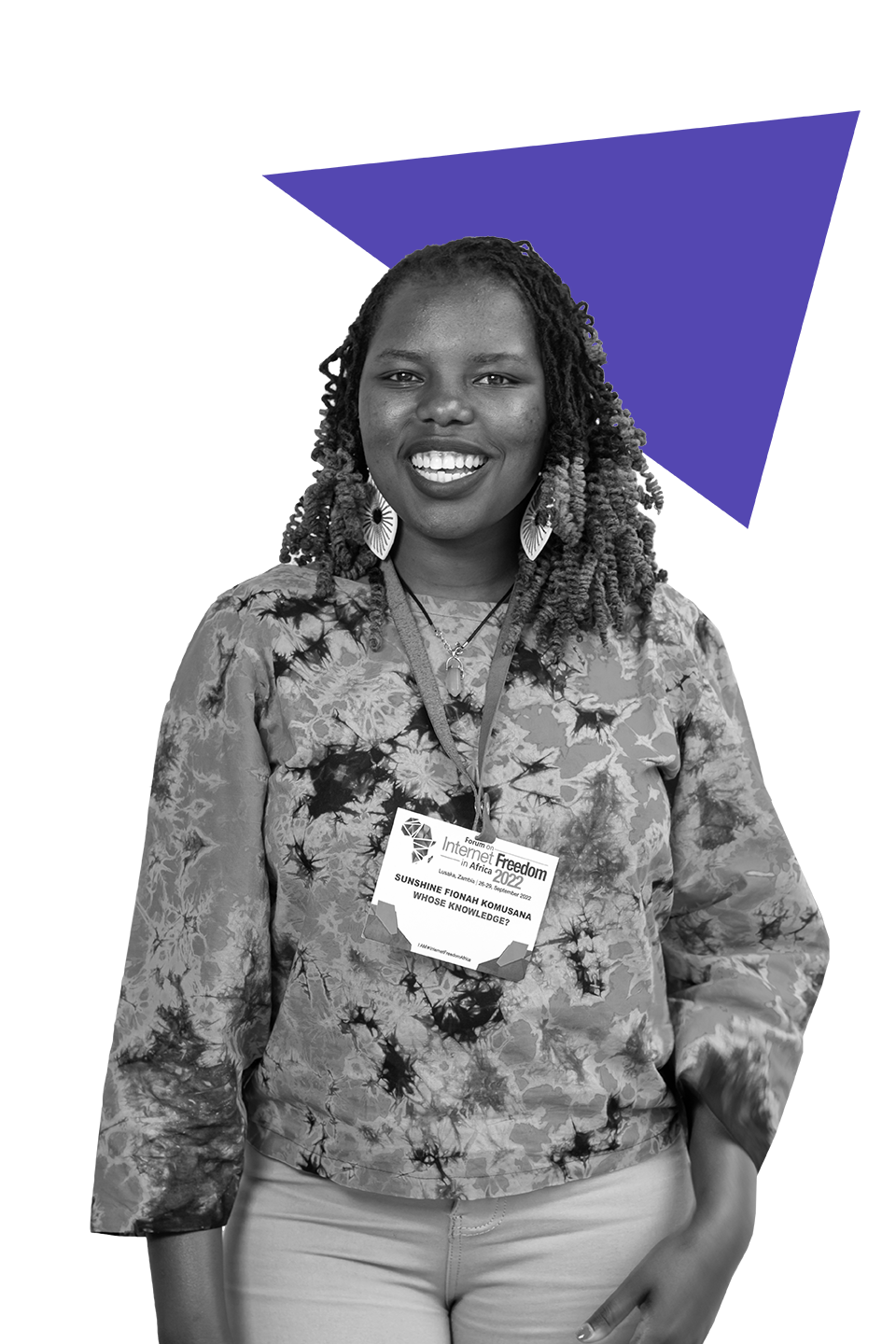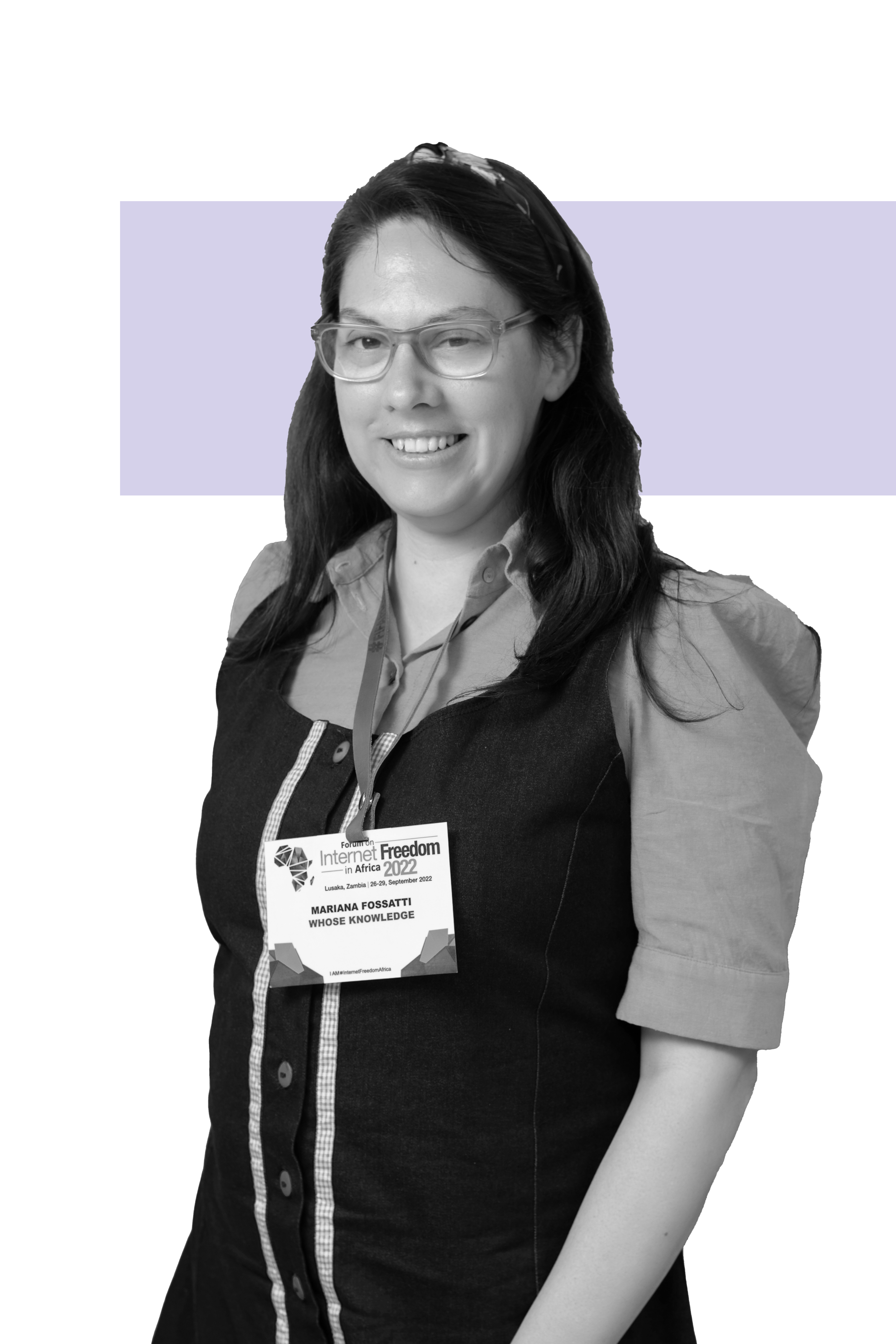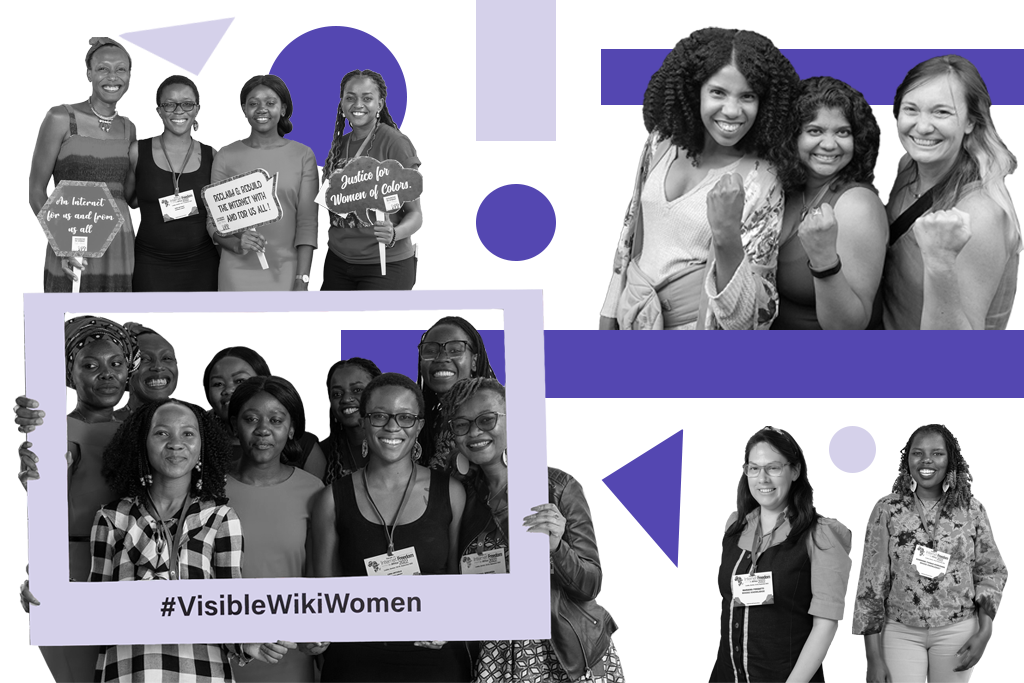While three-quarters of the world’s online population today comes from the Global South (Asia, Africa, and Latin America) and nearly half are women, most public knowledge online has been written by white men from the Global North. The feminist collective and Wikimedia volunteer group, “Whose Knowledge?,” is working to change this.
Sunshine Fionah Komusana, the #VisibleWikiWomen Campaign Coordinator, and Mariana Fossatti, the Decolonizing Wikipedia Coordinator at Whose Knowledge?, describe their efforts as “… a radical re-imagining and re-design of the internet so that together we can build and defend an internet of, for, and by all.” One of the ways this is done is through #VisibleWikiWomen, a campaign aiming to make notable women more visible both on Wikimedia Commons, Wikipedia, and the broader internet.
Wikipedia and other Wikimedia projects can, oftentimes, be used as a proxy to show the many ways women’s and marginalized communities’ contributions are invisible online. Many of the images you see on Wikipedia come from Wikimedia Commons, but it is estimated that only a little over 20% of all images of human beings on Wikimedia Commons represent women. Running in its sixth year, #VisibleWikiWomen aims to close that gap by helping feminists, collectives, volunteers, and movements to upload images of women, especially women of color, to Wikimedia Commons throughout the year.
I recently spoke with Sunshine and Mariana to learn more about #VisibleWikiWomen and why seeing women’s faces is so important in closing the knowledge gaps online.
Q: What inspires you to be part of #VisibleWikiWomen and Whose Knowledge?
Sunshine: Our background is what inspires us. As a team of feminists and women from the Global South, we exist at the intersection of multiple inequalities and oppressions. We see our work at Whose Knowledge? and #VisibleWikiWomen as our contribution to a world that exists both physically and digitally. One that gives us the opportunity to humanize people like us by centering our stories and having our voices heard and our experiences visualized.
At the end of the day, we want to create a space for other non-binary people and women of color to create the internet they want for themselves, by themselves, so that the online world reflects our complex and multimodal existence.

Sunshine Fionah Komusana
![]()
We see our work at Whose Knowledge? and #VisibleWikiWomen as our contribution to a world that exists both physically and digitally. One that gives us the opportunity to humanize people like us by centering our stories, having our voices heard, and our experiences visualized.
Q: If there was one thing you would want people to know about #VisibleWikiWomen, what would it be?
Sunshine: We would like people to know that there is a huge visibility gap on Wikipedia with less than one-quarter of Wikipedia biographies representing women. The fact is many of the biographies of important women are incomplete or do not exist. Many incomplete articles do not have an image due to gender and racial discrimination, historically based on colonialism, which created a gap in media, art, photography, and archives. As a result, so many times women, and especially women of color, simply aren’t pictured – literally and figuratively. #VisibleWikiWomen aims to close this gap by supporting feminists, movements, collectives, and volunteers to create, find and upload images, add photos or illustrations for biographies, and create the internet we can all see ourselves in.
![]()
…There is a huge visibility gap on Wikipedia with less than one-quarter of Wikipedia biographies representing women… As a result, so many times women, and especially women of color, simply aren’t pictured – literally and figuratively.
Q: What does Open the Knowledge mean to you?
Mariana: We invite everybody to think critically about what it really means to “open the knowledge”. Are we opening the knowledge only when we quantitatively increase the content available online? Or do we open the knowledge when we make knowledge production more accessible and available to all?
At Whose Knowledge? we open the knowledge by making sure that the majority of the world — that are often called “minorities” — are fully engaged in knowledge building. Open the Knowledge invites us to critically look at our efforts so far, and make sure that nobody is left behind, and everyone has a voice in opening the knowledge.
In this sense, our task as a global social movement toward knowledge justice is a continuous critical effort that never ends. As the Uruguay writer Eduardo Galeano beautifully put, citing Argentinian filmmaker Fernando Birri: “Utopia is on the horizon. I move two steps closer; it moves two steps further away. I walk another ten steps and the horizon runs ten steps further away. As much as I may walk, I’ll never reach it. So what’s the point of utopia? The point is this: to keep walking.”

Mariana Fossatti
![]()
Open the Knowledge invites us to critically look at our efforts so far, and make sure that nobody is left behind, and everyone has a voice in opening the knowledge.
Q: What is one action item someone could take today to help close knowledge gaps on Wikipedia?
Mariana: We invite everybody to ask themselves – is there a person important to the history of your community who we should all know about? Then write about them! We implore you to start small – for example, look up their article on the Wikipedia of your choice (which may not be Wikipedia in English or other colonial languages) and see if there are areas in the article you can create or improve on. Every edit makes a difference.
But the essential mission behind doing this work is to help create solidarity networks across marginalized community organizers, such as scholars who have deeply embodied knowledge of their own communities, together with long-time Wikipedians and others interested in tech.
![]()
We invite everybody to ask themselves – is there a person important to the history of your community that we all should all know about? Then write about them!
Learn more about #VisibleWikiWomen and get involved here.
. . .
Does the content on Wikipedia reflect the world’s diversity?
Every day, volunteers all over the world—like the ones featured on this blog—work on knowledge equity initiatives to help close knowledge gaps. Want to understand why this work matters? Watch this video, part of our A Wiki Minute series, to learn more.
. . .
This blog is part of Open the Knowledge: Stories, a series which features volunteers from the Wikimedia movement who are helping the world truly find the sum of all human knowledge on Wikimedia projects. If you want to know more about what knowledge equity is, why it matters, and how you can help us achieve it, join us at Open the Knowledge.
. . .
This interview has been edited for clarity and length.
Barbara Kandek is a Communications Associate at the Wikimedia Foundation.
This post was updated on March 2, 2023, to clarify that Wikimedia Commons is the source of many, not all, images on Wikipedia.

